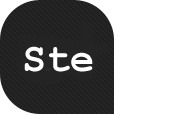It’s vital to get the first couple of words exactly right when
writing effective web headings and links.
The first two words have a huge impact on whether or not people
will click on a link according to a new study by Jakob Nielsen.
This basically confirms the findings of a 2004 Eyetrack study
from the Poynter Institute that found that, “Most people just
look at the first couple of words-and only read on if they are
engaged by those words. For headings-especially longer ones-it
would appear that the first couple of words need to be real
attention-grabbers if you want to capture eyes.”
The Jakob Nielsen study tested 80 people and found that they
typically see the first two words in a link. The study tested
links from websites such as AT&T, Intel, Dell and UK
Directgov.
The best links in the study:
* Used plain language
* Were specific and clear
* Used common words
* Started with the essence of the message
* Were action-oriented
The worst links in the study:
* Used bland, generic words
* Used made-up words or terms
* Started with after-dinner-speech-
There is nothing worse on the Web than welcoming people, and
telling them about how you’re so delighted to announce the
launch of, or about how on your website they will be able to
find, or about how it’s now even easier, or about how you’re
introducing, launching, or already in an orbit of hot air.
Web content is brutal and to-the-point. Lead with the need.
Don’t get to the point. Start with the point. Remember, your
website is the context, so you should never start a link,
heading or sentence with your organization’s name. The website
visitor knows your name. They’re on your website, after all.
Links and headings are very similar in their function. They act
as signposts, as promises. Do not mislead or over-promise. One
of the most common mistakes in link writing is that the link
does not deliver on the promise. The links says “buy stamps
here” or “download now”, and four clicks later you’re still not
able to download. Now means now, not five clicks, two forms and
four minutes later.
Links and headings should be no more than 8 words. We did a
study recently of 500 web news headings. Over 70 percent of them
were 8 words or less. Avoid putting links in sentences because
this makes it harder to read the sentence, and harder to
understand what the purpose of the link is. Instead put links on
separate lines after the content.
Avoid PR, advertising and marketing gibberish at all costs.
Please, please never, ever write anything like “solving
tomorrow’s problems today” or “excite your senses” or “the human
element is providing comfort every day.”
Don’t be smart, clever, obscure, vague. Be clear, compelling,
concise, and always focus on what your customers really care
about. And remember, what your customers really care about is
very often not what you really care about.
First 2 Words: A Signal for the Scanning Eye
http://www.useit.com/alertbox/
Gerry McGovern
mailto:gerry@gerrymcgovern.com

